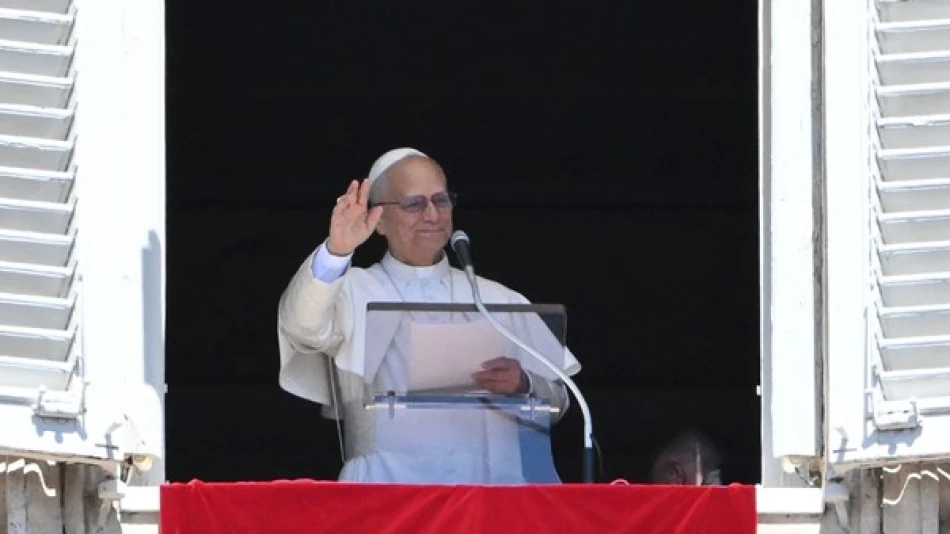
Pope Leo XIV Calls for Curbing the "Pandemic of Weapons"
Pope Francis Escalates Global Arms Critique, Linking Ukraine War to U.S. School Violence
Pope Francis delivered one of his strongest condemnations yet of global weapons proliferation on Sunday, coining the term "pandemic of arms" while directly connecting the Ukraine conflict to domestic gun violence in America. Speaking from the Vatican, the pontiff explicitly referenced a recent Minnesota school shooting alongside the ongoing war, signaling a more aggressive papal stance on international arms control.
A Strategic Shift in Vatican Diplomacy
The Pope's English-language remarks represent a calculated escalation in Vatican diplomatic messaging. By framing weapons proliferation as a "pandemic" – a term that resonates globally after COVID-19 – Francis is positioning the Catholic Church as a central voice in international security debates at a time when traditional diplomatic channels have stalled.
"We include in our prayers countless children who fall as victims, wounded and killed every day around the world," Francis stated. "We implore God to end the pandemic of arms, heavy and light, that pollute our world."
Timing Suggests Coordinated Peace Push
The Pope's intervention comes as multiple conflicts show signs of potential diplomatic openings. His specific call for leaders to "abandon the logic of arms and engage in a path of negotiation and peace, with support from the international community" suggests Vatican intelligence indicates possible movement in Ukraine negotiations.
This represents a more assertive approach than the Vatican's traditional quiet diplomacy, potentially reflecting frustration with nearly two years of failed peace initiatives.
Connecting Global and Domestic Violence
Francis's decision to link the Ukraine war with the recent Minnesota school shooting that killed two children marks a strategic communication choice. This connection serves multiple purposes: it universalizes the arms critique beyond geopolitical conflicts and directly challenges American audiences on domestic gun policy.
The Pope specifically urged against "surrendering to indifference" regarding Ukraine while simultaneously highlighting American school violence – a pairing that puts pressure on U.S. policymakers who support Ukraine military aid while facing domestic gun control debates.
Historical Context of Papal Arms Advocacy
This intervention builds on decades of Vatican arms control advocacy, but with notably sharper rhetoric. Previous popes focused primarily on nuclear weapons during the Cold War. Francis's "pandemic" framing encompasses everything from small arms to heavy military equipment, suggesting a comprehensive critique of the global defense industry.
The timing also coincides with upcoming defense budget debates in major NATO countries, potentially influencing public opinion in key Catholic-majority nations like Poland and Italy.
Implications for International Relations
The Pope's call for immediate ceasefire and "serious commitment to dialogue" in Ukraine carries particular weight given the Vatican's unique diplomatic position. As one of the few institutions maintaining dialogue with both Moscow and Kyiv, papal statements often signal behind-the-scenes diplomatic developments.
His emphasis on international community support suggests the Vatican may be preparing to play a more active mediation role, potentially coordinating with other neutral parties like Turkey or certain African nations that have maintained relationships with both sides.
For global leaders, particularly those in Catholic-majority countries, this represents increased moral pressure to prioritize diplomatic solutions over military escalation – a message that could influence upcoming NATO and EU policy discussions as Western support for Ukraine faces growing domestic political challenges.
Most Viewed News

 Layla Al Mansoori
Layla Al Mansoori






